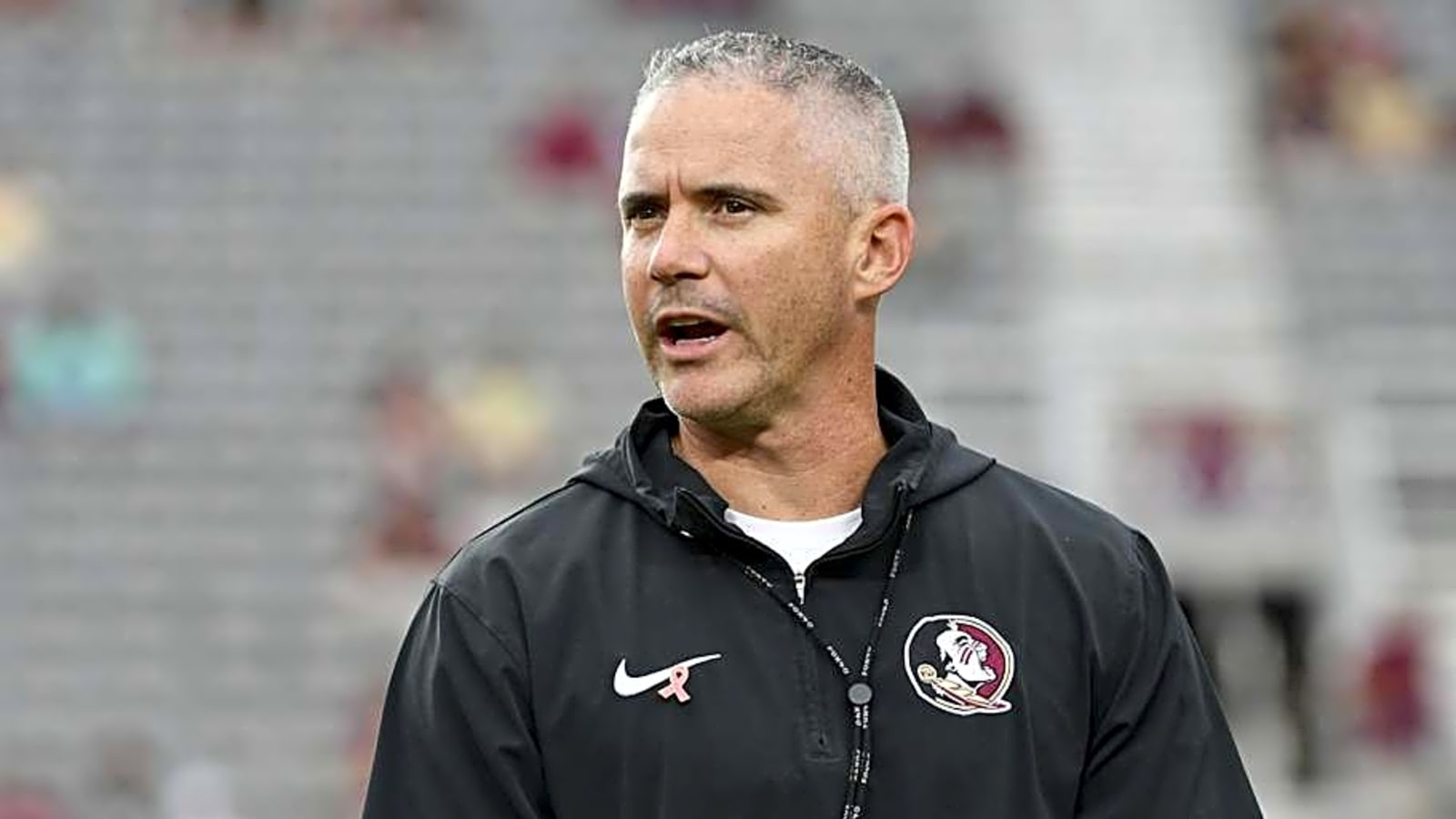
Florida State has courted some controversy this offseason regarding the language in its revenue-sharing contracts with football players and other student-athletes.
Industry analysts are concerned about what the deals could mean for the Seminoles going forward, including three-time national champion head coach Urban Meyer.
He thinks the school could be in real trouble when it comes to recruiting talent.
“If this is legit, if this goes through, which I’m so skeptical, then the days of Florida State are numbered,” Meyer said on The Triple Option podcast.
“It won’t happen. It can’t happen. No chance,” he added.
The big threat that Florida State would face from what analysts consider to be restrictive language in its rev-share deals will be seen on the recruiting front, Meyer said.
Those contracts give the school outsized leverage over players by giving itself the right to extend a player at the end of a deal without negotiating, according to documents seen by CBS Sports.
The school could also levy fines in the thousands of dollars if players lose equipment like cleats or shoulder pads.
In addition, players would be subject to a clause outlining breach of contract that includes “illness or injury which is serious enough to affect the value of rights granted to the school,” allowing FSU to renegotiate or cancel a player’s deal.
Meyer thinks the recent emergence of player freedom in the era of NIL payments and around the transfer portal has moved schools to dramatically shift power back into their corner.
“I think what’s happening is the pendulum swung so far that the players could leave anytime, unlimited transfers, NIL, no limitations, no guardrails, and now it’s swinging back,” he said.
“And some people that shouldn’t be involved are getting too involved and they’re putting this power struggle that I’ve never seen anything like that.”
He added: “Recruiting -- it’s over. You can’t recruit, and in case you haven’t noticed, college football is about recruiting.”
Fellow podcast co-host and former Alabama star and Heisman Trophy winner Mark Ingram concurred with Meyer’s perspective.
“Players aren’t going to go there because, for one, this contract gives Florida State way too much control over your future and your money,” Ingram said.
“It exposes you to risk, injury, discipline, loss of leverage. All that. So if you’re a top player and you’ve got Florida State as your top university and they give you this, I’m sure there’s another university that is going to give you better conditions and treat you like a partner, not an asset.”
Florida State has defended its player contracts amid criticism.
“As we enter into a new age of collegiate athletics, Florida State has put together an agreement that provides deliverables and expectations for all parties,” the school said in a statement.
“Each individual situation will be unique and the hypotheticals are impossible to predict. However, we are committed to continuing to provide an elite experience for our student-athletes in all aspects of their collegiate career.”
FSU added: “Florida State is looking forward to the mutually beneficial partnerships with our student-athletes in this new era.”
The historic House settlement that became official on July 1 allows for direct revenue sharing between schools and athletes in all sports up to $20.5 million.
Football players are expected to receive the bulk of that pile, but the conditions under which they’ll be paid and handled are still up for debate as the new system gets underway.
--
Read
More must-reads:
- Diego Luna's rise proves annual 'Camp Cupcake' still has plenty to offer USMNT
- Emma Navarro win continues unprecedented run of parity in Wimbledon singles' ladies draw
- The 'MLB ballpark names' quiz
Breaking News
Trending News
Customize Your Newsletter
 +
+
Get the latest news and rumors, customized to your favorite sports and teams. Emailed daily. Always free!








